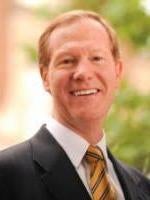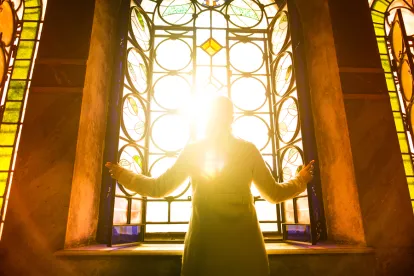Churches, religious organizations and faith-based organizations were delighted to learn that they were eligible for funding under the recently enacted Paycheck Protection Program (PPP) included in the recently enacted federal CARES Act (the Act). Upon closer inspection, however, many of these organizations began to express concerns about whether applying for funds under the Act might infringe upon their religious autonomy. Fortunately, the Small Business Administration (SBA) recently issued an Interim Final Rule and a separate Frequently Asked Questions designed to address these concerns.
One concern of churches and other faith-based organizations is that they might be deemed to be part of larger affiliations with other organizations adhering to similar religious values, thus potentially disqualifying themselves from the PPP loans because they would exceed the 500 employee limit. The SBA clarified that the affiliation rules will not apply if the affiliation "is based on a religious teaching or belief or is otherwise part of its exercise of religion." The affiliation rules will apply only if the affiliation is for non-religious reasons. If a faith-based organization is relying on this exemption, the SBA recommends the attachment of an addendum to the PPP loan application to claim this exemption. The SBA has drafted a sample addendum to be used for this purpose, although applicants are free to draft their own.
Many churches and other faith-based organizations are also concerned that they might not qualify for a PPP loan because they have never applied for recognition of tax exemption and have no IRS determination letter to that effect. The SBA guidance now clarifies that no such IRS determination letter is required.
Yet another concern of religious organizations is that they might be sacrificing some element of their religious autonomy if they apply for a PPP loan. In that regard, the SBA guidance explicitly provides that "a loan through any SBA program does not (1) limit the authority of religious organizations to define the standards, responsibilities, and duties of membership; (2) limit the freedom of religious organizations to select the individuals to perform work connected to that organization's religious exercise; nor (3) constitute waiver of any rights under federal law, including rights protecting religious autonomy and exercise under the Religious Freedom Restoration Act of 1993 (RFRA)…or the First Amendment." Indeed, the guidance goes even further to provide that a faith-based organization "will retain its independence, autonomy, right of expression, religious character, and authority over its governance…." This should provide a significant degree of comfort to religious organizations that otherwise had expressed significant reservations over whether to apply for the SBA loans.
Finally, some religious organizations have expressed anxiety over whether they would be subject to federal nondiscrimination laws. As some religious organizations had feared, the SBA confirmed that receipt of federal loan monies would constitute federal financial assistance (FFA) and thus would subject such organizations to federal nondiscrimination obligations. This would include nondiscrimination on the basis of sex, which would implicate such matters as transgender rights, gay marriage and termination of pregnancies. To address these concerns, the SBA effectively bifurcated the issue into two categories. For goods, services or accommodations offered to the general public, the nondiscrimination rules would apply. As an example, the SBA cited a restaurant or thrift store that was open to the general public. For goods, services or accommodations offered strictly to its own members, however, the nondiscrimination rules were deemed not to apply. More specifically, the SBA guidance provided that the nondiscrimination regulations would not be applied "in a way that imposes substantial burdens on the religious exercise of faith based loan recipients, such as by applying those regulations to the performance of church ordinances, sacraments, or religious practices, unless such application is the least restrictive means of further a compelling governmental interest. In any case, these nondiscrimination rules will not apply once the PPP loan is repaid.
Although perhaps not as clear a road map as religious organizations would have liked, the guidance does demonstrate sensitivity by the SBA to these types of concerns.




 />i
/>i
